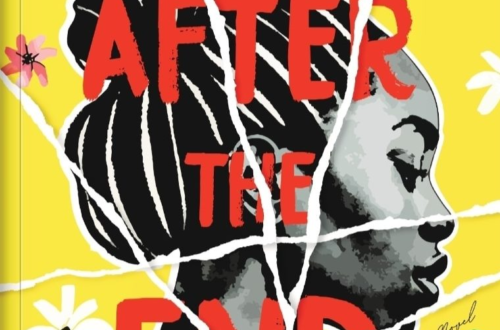Agema’s collection of poems is a labyrinth of sweeping anecdotes; juxtaposing a motley of quotidian motifs that tug persistently at our fragile coats of existence with impish punches, in this terra firma. Agema writes with the zest of a skilled hunter; wielding sharp-edged swords and other accoutrements at the call of duty. His poetic nuances, in this baroque of evocation, are rooted both in profound lyricism and an instinctual diagnosis of human circumstances. His writing style leaps like water-froths, entreating you to come in for an ethnic dance with flailing hands in a restive, festive and solemn footwork to the call of waters. In this collection of poems, we encounter burly allegories and engorging metaphors that tape human logic with an avalanche of disarming instructions cloaked in rafts of stories about banditry, corruption, memories, anxieties and the litany of unconscientious parvenu in politics, festooned to a whirlpool of poignant verses. This collection has seven sections championing diverse themes that plumb the gut-wrenching gradients of occurrences and the occasions that awaken them.
In the opening poem, before learning a new normal, the persona in the poem, enthused about the mischiefs of salvation hawkers and the effect their gouging activities had on their followers and the community at large. The pains of the persona are felt in lines like:
… I hear the voice above the waters and see a dove descending not after baptism but after my several murders…
The persona speaks in cryptic terms and his bout with the amoral sway of shepherds fleecing the sheep they are supposed to nurture and other lecherous indulgence of these men whose god is their belly and wreaking havoc on souls with their sacrilegious skirmishes. The persona also enunciates the vault faced and distraught disposition of himself and the leaders in whose hands he had suffered abuse and had become a stumbling block to others – a rock of offence. The persona in the last line, zoomed in on the arrogance and aloofness of these wolves in sheep’s clothing and the helplessness of the pliable saints.
In the poem, learning a new normal, the persona in the poem, ensconced the seismic raid by the pandemic in a forcible evocation and his tryst with anthropomorphism to describe our obstinate admittance of the new normal and how we have survived the earth’s tantrums and carried on still with the alluvial of its psychological effects minted in memories. In the poem, the genesis of belief, the persona reins an esoteric being in a paean of contrition like a lost soul in an epiphany and leaks his feelings in lines like:
…Pulled from your ways, I come again
to these million sparkles birthed by solar jewels…
In the latter verses, we see the persona’s enunciations helmed by a strong conviction in a divine force whose grandeur surpasses his descriptions.
In the poem, let there be light, the persona spun webs of satire about the spate of darkness in his country and drew parallels from the scriptures to delineate the persistent power cut and the tongue in cheek commitment of the government to fix the epileptic power supply in the country of over 200 million people tethered to the grating grope of darkness.
Agema espoused the scorching fate of the Chibok girls in the poem, the stars are orphans tonight, his uneasiness is etched with disgust as seen in these lines:
…Rods are poked deeper again into torn midpoints
Of men whose balls swing as their pendulum
Beat time, forcing their way through sealed paths
Their panting sighs bring cries
Laughs crowning beasts accursed in deepening thrusts…
In the poem, a song of waters, Agema exhales concerns for Niyi Osundare, locked in the jaws of Katrina in far Orleans. Agema wrought the burdens and jeremiads of this illustrious bard in peculiar words as seen in these lines…
Pain weaves a coat and wears your being
sending jabs across the miles
You shiver to the winds, stuck in time
As you hold on to a raft for life,
Your mother’s voice rings…
He relayed what the mother’s voice rings about in lines like:
…drawn from this water’s womb, you shall have many days,
days on end shall be a song without wrong placed on your tongue.
It shall spread in lines to ink hope beyond thoughts and seasons…
Agema’s reflections on that dreary encounter pillowed our thoughts to sympathy in those lines; understanding the fret of any mother when her son is stuck in a tempestuous clatter of waters.
In the last poem, sailing on the sea of stars, the persona in the poem turns thought on better days to come and speaks of lights at the end of a protracted darkness as seen I these lines …
.. Though the troubles brew strong
I see Ao^ndo’s hands and I know they are long
enough to destroy everything that is wrong
Agema listed the unfortunate incidents during the Taraba killings in the poem, muted moos in their moans, and the travails of the 13 girls of FGC Yauri in the wilderness of rape, torture, wistfulness and abduction in the poem, losing a flower.
In this propulsive collection of poems of about 97 pages, skinned in seven layers, Agema thrilled us with his dexterous use of words, laced with classic inflections and copacetic locutions. His faith is brought to bear in most of the pages in this riveting collection. Though some of the qualifiers had threadbare hold on the subject matter in certain verses, but this collection is a potpourri of fitly sculpted narratives worthy of radiant acceptations.




